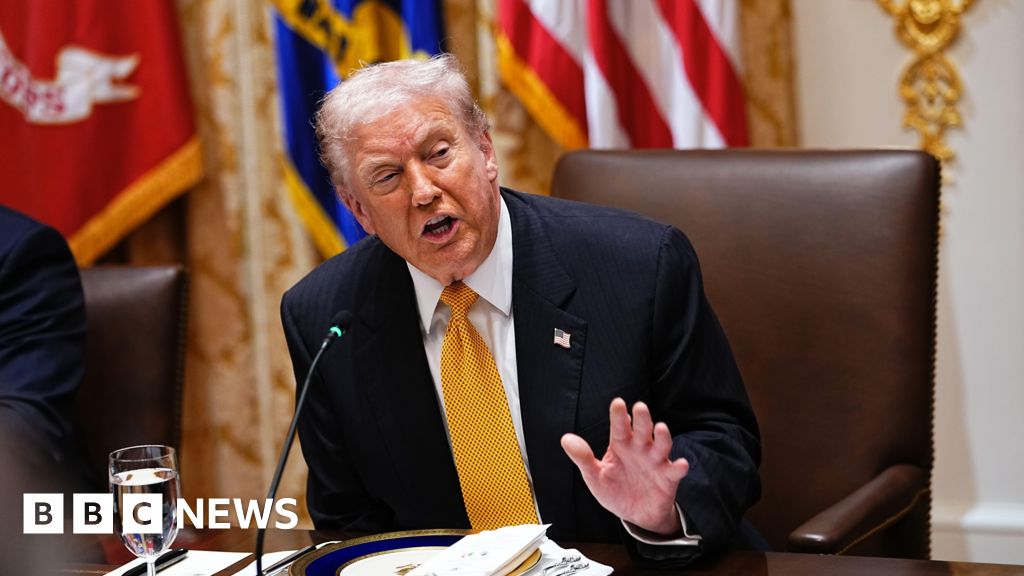US to boycott G20 in South Africa, Trump says

US Boycotts G20 Summit in South Africa Over 'Discredited' Claims of White Persecution
The United States will not participate in the upcoming G20 summit in South Africa, former US President Donald Trump has announced, citing what he called the "total disgrace" of the country hosting the event. Trump's decision is based on unsubstantiated claims of widespread persecution of white Afrikaners in South Africa, allegations that have been widely discredited by the South African government, courts, and independent observers.
The G20 summit, bringing together leaders from the world's largest economies, is scheduled to take place later this month in Johannesburg. South Africa's foreign ministry has expressed its regret over the US decision, but emphasized that the summit's success does not depend on the participation of a single member state.
South Africa Dismisses Allegations as "Ahistorical" and "Unsupported by Fact"
In a statement, the South African government strongly refuted Trump's claims, calling them "widely discredited and unsupported by reliable evidence." A spokesman for the foreign ministry, Chrispin Phiri, told BBC News that Trump was "orchestrating an imagined crisis… using the painful history of South Africa's colonial past." He stated unequivocally that there is "absolutely no evidence of white persecution in South Africa," acknowledging the country's challenges with crime, which he emphasized affects all races.
"We will move on without the United States," Phiri asserted, highlighting the government's commitment to hosting a successful summit despite the US boycott. Trump conveyed his decision via his social media platform, Truth Social, stating that Afrikaners "are being killed and slaughtered, and their land and farms are being illegally confiscated." He declared that no US government official would attend the G20 "as long as these human rights abuses continue."
Historical Context and Expert Analysis
The claims of a "white genocide" in South Africa have been circulating for years, primarily within far-right circles in the US and Europe. These claims often distort the complex realities of land reform and crime in South Africa, leveraging the country's history of racial segregation under apartheid to create a narrative of victimhood. Dr. Liesl Louw-Vaudran, a senior researcher at the Institute for Security Studies in Pretoria, notes that such claims "tap into deep-seated anxieties about demographic shifts and historical injustices." She further explains, "While crime is a serious issue in South Africa, it is not targeted at any specific racial group. The narrative of 'white genocide' is a dangerous distortion that fuels racial tensions and undermines efforts to address the country's real challenges."
Historically, land ownership in South Africa has been deeply skewed, with a significant portion of arable land still held by the white minority, decades after the end of apartheid. The government has been pursuing land reform policies to address this historical imbalance, but these efforts have been hampered by corruption, inefficiency, and legal challenges. While some instances of farm attacks have occurred, these are often linked to broader issues of rural crime and economic inequality rather than racially motivated persecution.
US Policy Shift and International Implications
Trump's stance on South Africa is not new. During his previous presidency, his administration considered granting asylum to white South Africans based on these same "genocide" claims. This policy drew criticism from human rights organizations and the South African government, who saw it as an attempt to interfere in South Africa's internal affairs and undermine its efforts to build a non-racial society.
Professor John Stremlau, a visiting professor of international relations at the University of Witwatersrand, suggests that the US boycott could have broader implications for international cooperation. "This decision risks alienating not only South Africa but also other African nations who see it as a dismissal of their concerns and a perpetuation of harmful stereotypes," he argues. "It undermines the spirit of multilateralism that is essential for addressing global challenges such as climate change, economic inequality, and pandemics."
G20's Role and Future Outlook
The G20 was established in 1999 in response to the Asian financial crisis, aiming to foster international cooperation and economic stability. The member nations collectively represent over 85% of the world's wealth. The annual leaders' summit serves as a platform for discussing global economic issues and challenges. The US boycott of the upcoming summit raises questions about the future of US engagement with the G20 and its commitment to multilateralism, particularly in the context of Africa.
While the South African government has expressed its disappointment, it remains determined to host a successful summit and advance its agenda on issues such as sustainable development, inclusive growth, and climate change adaptation. The absence of the US delegation will undoubtedly be felt, but South Africa is working to ensure that the summit remains a valuable forum for international dialogue and cooperation.
Originally sourced from: BBC News Africa
